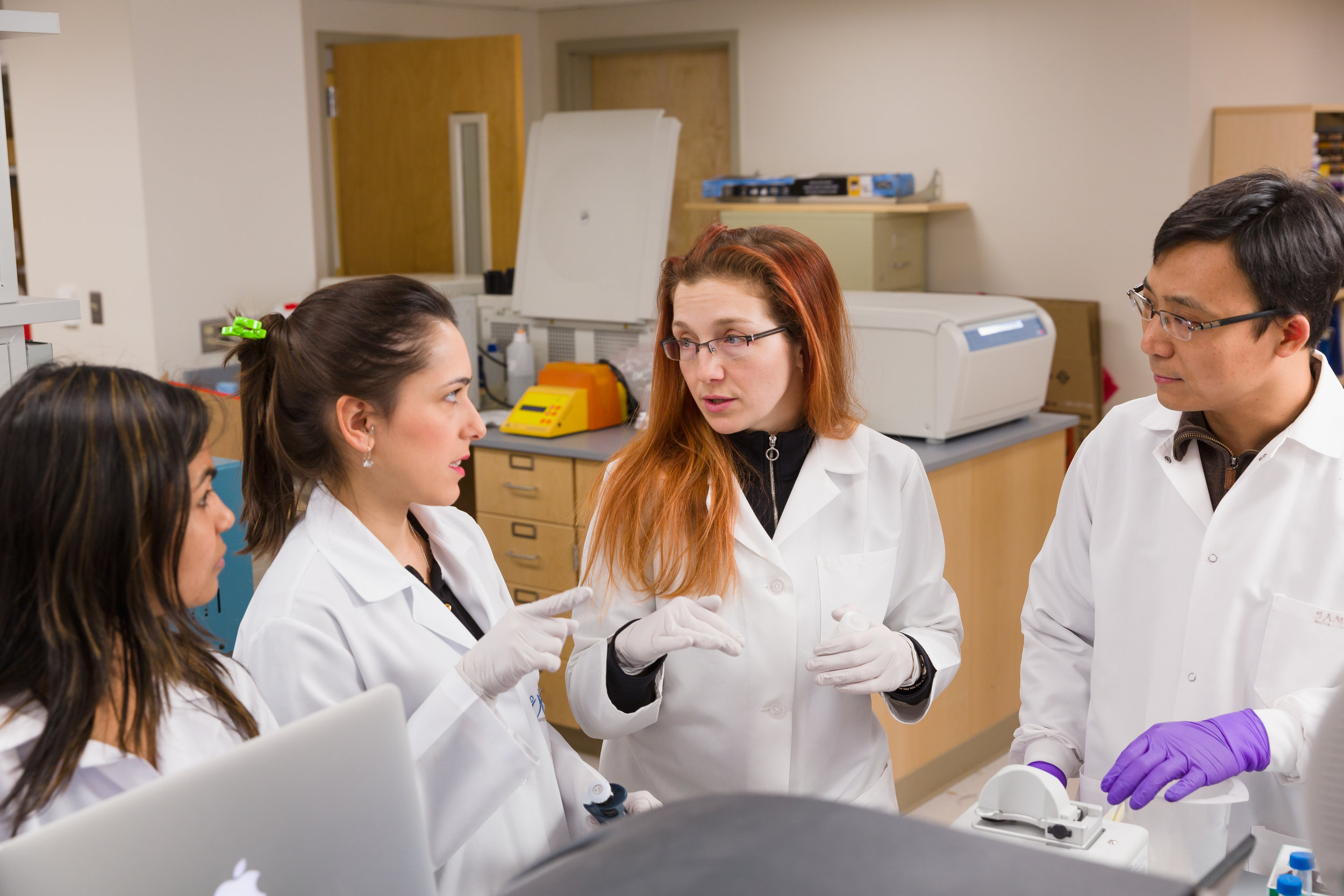Defining cellular and molecular mechanisms of allergic and alloimmune antibody responses
Our Research
The lab is currently run by both Stephanie and Adam, and they team up with each one of the members to understand how dendritic cells, B cells and T cells interact to
induce tailored adaptive immune responses. Our work spans how this triad is
operational in the spleen to transfused red blood cells (RBCs), in the lung to
aeroallergens, and in the gut to food allergens, utilizing both mouse models and
human samples. Such an understanding has important implications for potentially
altering and tracking the inappropriate immune response to food allergens, transfusions and aeroallergens.

